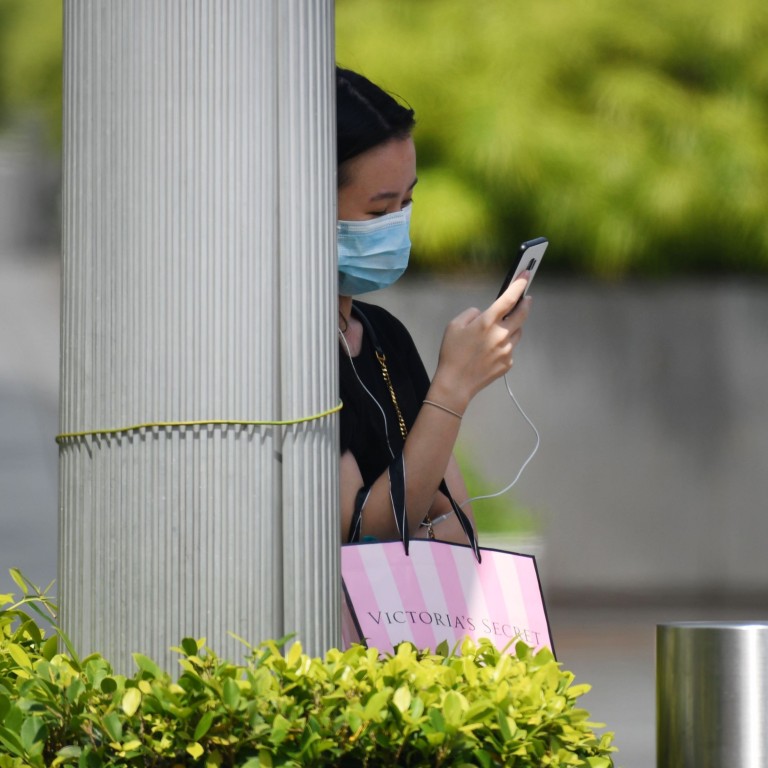
Garlic won’t keep the coronavirus at bay. Neither will saltwater gargling or cow dung
- From Singapore to Indonesia, dubious claims to prevent infection are spreading on social media and chat groups
- The World Health Organisation has taken to debunking such home remedies, including the rumour that eating garlic will offer protection
The latter advice – despite being prevalent on social media and in chat groups – is not true. The scientist never gave such advice, and the method will not work.
As the coronavirus continues to spread around the world – it has infected more than 28,000 people so far, killing 563, while 911 have recovered – so too do home remedies claiming to stop it.
‘Corona beer virus’ searches surge as China coronavirus spreads
She might be savvy about disbelieving such dubious claims, but many others forward such messages along to friends and family. One who did so was a concerned aunt in the Singapore-based Chen family’s WhatsApp group chat. She said the novel coronavirus could be cured by drinking a bowl of freshly boiled garlic water.
“Old Chinese doctor has proven its efficacy,” the aunt wrote. “Many patients have also proven this to be effective.”
While the younger cousins dismissed the false remedy in a separate group chat, no one corrected their elders in the main family chat so as not to appear disrespectful – and so the home remedies spread on. There are recommendations to eat more kimchi, chicken soup, traditional Chinese medicine (TCM) and Ayurvedic plants. And according to a chief of a Hindu political party in India, applying cow dung to one’s body can help combat the virus.
How the coronavirus spread anti-Chinese racism like a disease through Asia
Many of these methods have been debunked, including by the AFP Fact Check microsite. They confirmed with the First Affiliated Hospital of Guangzhou Medical University, where Zhong’s medical team is based, that the saltwater gargling claim was medically unfounded. The World Health Organisation (WHO) also said there was no evidence to suggest it could prevent infection.
The WHO has been refuting these home remedies on their Twitter account with the hashtag #KnowTheFacts. “Sesame oil is delicious but it does not kill 2019-nCoV,” said a post on Sunday, using the scientific name for the virus.
“Garlic is a healthy food that may have some antimicrobial properties. However, there is no evidence from the current outbreak that eating garlic has protected people from 2019-nCoV,” read another one posted on the same day.
The 2003 Sars outbreak also saw the spread of similar rumours. At the time, Chinese peasants set off firecrackers to scare off the “god of plague”, while others drank green bean soup to prevent infection – a tip spread over text message. Other fake cures for Sars included vinegar, turnips and cicada soup.
Last week, after state media Xinhua reported that a liquid made of honeysuckle and flowering plants could fight the coronavirus, people rushed to drug stores hoping to get the product, Agence France-Presse reported. Subsequently though, state media sounded a more cautionary note, quoting Zhang Boli, one of the researchers leading outbreak containment efforts, who warned of potential side effects of the medicine.
General practitioner Tan Tze Lee from The Edinburgh Clinic in Singapore said there was no evidence any of the prevention methods circulating on social media would work, “but if you feel it’s good for you, then whatever goes”.
Tan said the most important thing was to have good hygiene: “The whole idea of washing your hands, making sure they are clean, and don’t touch your face.”
India’s homeopathic ‘cure’ for coronavirus ‘immature and irresponsible’
Health authorities worldwide have regularly emphasised the importance of hygiene since the virus is likely spread by droplets. They advise people to wash their hands regularly; maintain a one-metre distance from others; avoid touching their eyes, noses and mouths; and to use masks “rationally”, only if there are respiratory symptoms.
If it is an immunity boost people are after, Tan recommends some basic tenets: “I always believe that if you sleep well, keep yourself healthy, drink lots of water and exercise regularly – all these things can do a lot to boost your immunity.”

